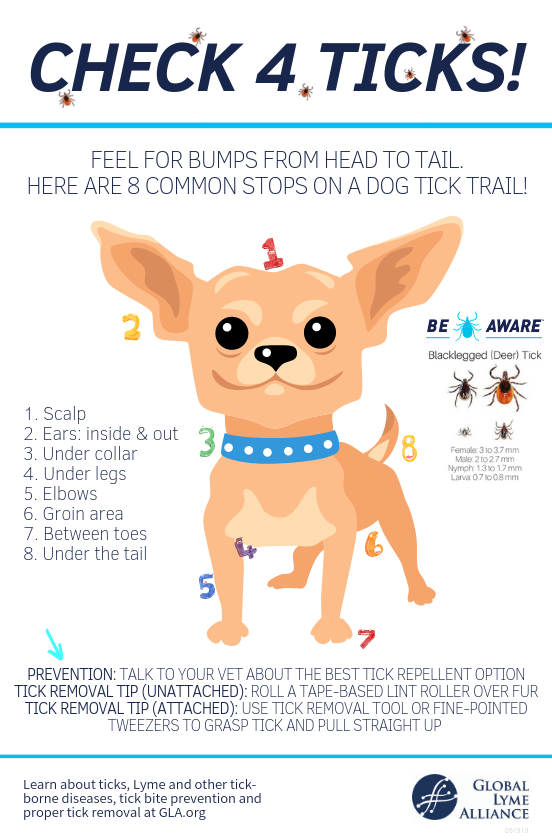About Lyme Disease
GLA Funded Research
Apply for Funding
If you have a pet, you need to be concerned about ticks—both for your animals’ sake and your own. Dogs, outdoor cats, and horses can get Lyme and other tick-borne diseases if bitten by a tick carrying Borrelia burgdorferi, the Lyme bacterium.

Signs of Lyme disease or other tick-borne illnesses may not show up for weeks or even months after a tick bite. If your pet exhibits the following symptoms, call your vet immediately.
Some pets may not show any symptoms, so it’s important to have your pet examined especially if ticks have been found. The earlier the illness is detected and treatment begins, the better your pet’s chances for a complete recovery.
If you live in an area where there is a high incidence of Lyme disease, like the Northeast or Midwest, your vet may recommend that your pet be vaccinated against Lyme. However, even if an animal is vaccinated, there are no guarantees they will avoid Lyme disease. Also, the vaccines will not protect your pet from other tick-borne illnesses.
Talk to your veterinarian about the best ways to protect your pet. At your next vet appointment, make sure to ask about testing for tick-borne diseases, Lyme vaccinations and any tick control products that are available.
***
Learn more:
Are Current Tick Prevention Methods for Dogs Working?
New Study Shows Prevalence for Lyme Disease in Dogs Increasing
For more blogs, click here.
Sign up for our newsletter below!
2023 © Copyright Global Lyme Alliance. All rights reserved.
Disclaimer: The above material is provided for information purposes only. The material (a) is not nor should be considered, or used as a substitute for, medical advice, diagnosis, or treatment, nor (b) does it necessarily represent endorsement by or an official position of Global Lyme Alliance, Inc. or any of its directors, officers, advisors or volunteers. Advice on the testing, treatment or care of an individual patient should be obtained through consultation with a physician who has examined that patient or is familiar with that patient’s medical history. Global Lyme Alliance, Inc. makes no warranties of any kind regarding this Website, including as to the accuracy, completeness, currency or reliability of any information contained herein, and all such warranties are expressly disclaimed.